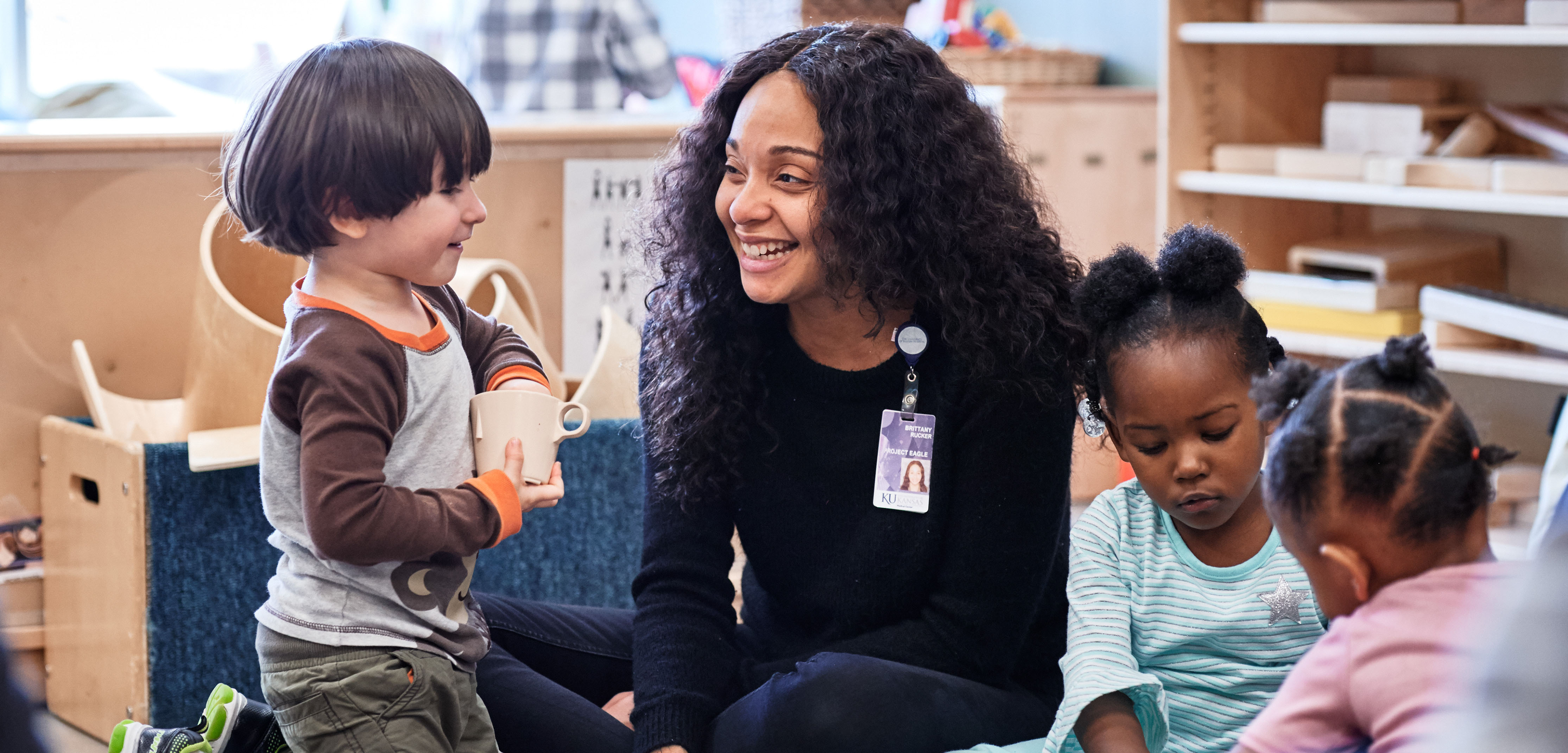
How Data Helped Reduce Food Insecurity at the CCKC
How does a simple assessment eventually feed dozens of families in Kansas City? At the Children’s Campus of Kansas City, it happens through constant collaboration and communication.
The co-location of three unique, family-oriented organizations at the Children’s Campus provides a unique opportunity for organic, ongoing partnerships. One of the longest-running and most fruitful examples of this is collaboration between Educare Kansas City, a research-based early childhood center and preschool, and Juniper Gardens Children’s Project (JGCP), a University of Kansas-affiliated research center.
Since completion of the construction of the CCKC in 2010, the two organizations have partnered to evaluate Educare’s efforts. Data provided to parents and teachers breaks information down into actionable steps and impact areas that can be used at home and in the classroom on a daily basis. The data is also used at the academic level as part of JGCP’s ongoing efforts to improve the lives of children through evidence-based science.
Though it certainly comes nowhere close to accounting for all of the ways in which this collaboration has been fruitful, a few direct impacts include:
- Data that Juniper Gardens collected identified family needs due to food insecurity. Based on this, Educare KC and Project Eagle established a food pantry.
- the Parent Café was started to give parents, teachers and family support staff the opportunity to meet together in an informal way to share ideas and celebrate successes.
- the collaboration has resulted in more meaningful, data-driven opportunities for professional development of Educare’s staff.
- Educare and JGCP present together at conferences, prepare information together so that they can more effectively reach out to families, funders and policy makers to continue to serve Kansas City children most effectively.
This partnership provides Juniper Gardens and Educare the opportunity to put evidence-based teaching practices into place, and to learn about what practices are most effective for children, families and teachers. And because both organizations have a national reach, what is learned at the CCKC is translated to programs and into research all over the country.
